
Yevhen’s story: how one young Ukrainian gained self-belief and capital to start his own business – thanks to EU4Youth
Ukrainian Yevhen Fedyk wanted to start his own company. Entrepreneurship courses gave him confidence, and the grant he won became the starting capital. He received both within the framework of the EU4Youth programme, financed by the European Union.
We are on the outskirts of Bakhmut town in Donbass. There is a grey concrete fence with the inscription: “Car service station”. Here internally displaced person Yevhen Fedyk repairs cars. We go into the courtyard, but there is no owner inside: only a column of old cars and a flock of pigeons meet us.
Finally, a person stained with black grease crawls out from under a car. This is Yevhen. He did not waste time waiting for journalists and started to repair the Daewoo Matiz standing in the shop. The owner and the only employee of his company wipes his soiled hands and comes to us to conduct a tour of his small service station.
Yevhen opened his company a few months ago after attending an entrepreneurship course conducted within the framework of the EU4Youth: Better skills for a better future programme.
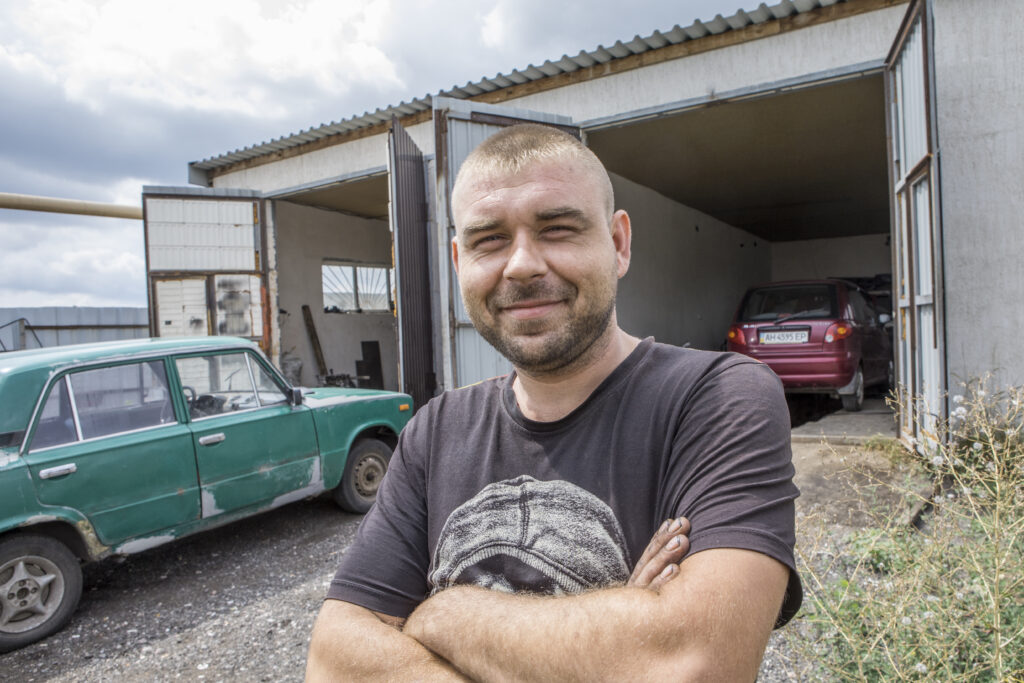 Yevhen Fedyk
Yevhen Fedyk
The programme, which is being implemented on the territory of those regions of Georgia and Ukraine affected by conflict, is funded by the European Union. The main goal of the project is to increase the level of education, employment and social integration of youth.
When asked what he had learned from his studies, Yevhen, who has never been an entrepreneur, answers succinctly: they helped him to believe in himself. And he admits, a little embarrassed, that it was his wife who wrote the business plan after he had completed the entrepreneurship course, and that he is more used to working with his hands. Yevhen submitted the business plan to be considered by the commission of the Save the Children, which coordinates the implementation of the EU4Youth programme in the Donetsk Region. His project was selected and he received a grant of about 1,000 euros.
According to Anton Stukalo, a representative of Save the Children, one of the important arguments for financing Yevhen Fedyk’s idea was that this project would benefit both the novice entrepreneur and the local community around him. “People who live here do not have the means to repair cars in expensive workshops,” Anton explains, “and mini-service stations like Yevhen’s are very popular”. Another argument in favour of Yevhen’s project was the fact that he already took the first steps towards his business on his own. Namely, he agreed to rent the necessary real estate on the outskirts of the city.
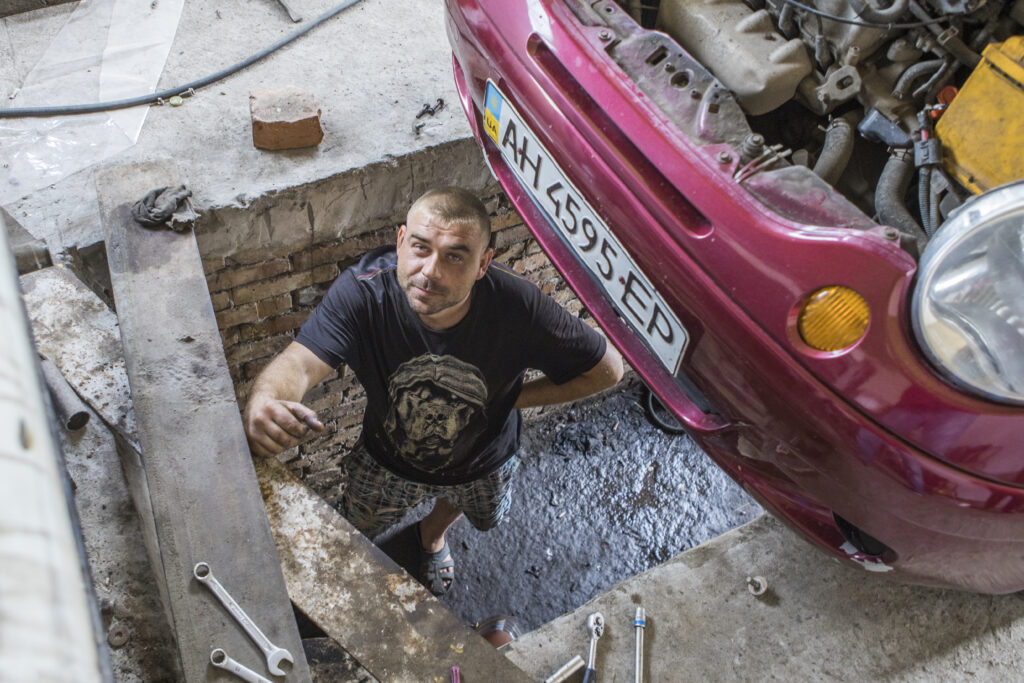 Yevhen Fedyk repairs a car
Yevhen Fedyk repairs a car
With the money received from the European Union, Yevhen was able to buy equipment that his competitors did not have. In particular, he acquired an expensive welding machine, hydraulic press and other tools. They allow performing more complex work than in other workshops. “My business is successful. I am confident in the future, I have a job,” he said.
To start from zero
Yevhen Fedyk is now 31. Five years ago, he and his family left the mining town of Horlivka, where he had lived his whole life. He left home because of military operations: in 2014, the city was seized by armed rebels.
Having moved to peaceful Bakhmut, Yevhen first got a job driving a taxi. The work was familiar, as this was how he earned a living in Horlivka. But when his personal car, which he used to drive customers, broke down, Yevhen had to think about what to do next.
It seemed logical to open a car repair shop: almost every experienced taxi driver understands how the car is built. And besides, Yevhen had studied the local car service market and felt it was not saturated. The first customers were his former colleagues.
Yevhen is guided not only by the local market, but also by those who enter the territory of Ukraine from the non-government controlled areas. The fact is that his workshop is located at the entrance to the city. Cars from those territories go to the peaceful territory of Ukraine via the same highway, through a special checkpoint.
“This is the road to Kharkiv from Horlivka, Donetsk and Yenakiyeve,” he explains, adding that the highway often “throws customers to him”. After a long line at the checkpoint, where sometimes you have to stand for several hours, the cars break down. “Anything can happen: the belts break and the silencers come off,” he says. And Yevhen’s auto repair shop is the very first that these cars reach along their way.
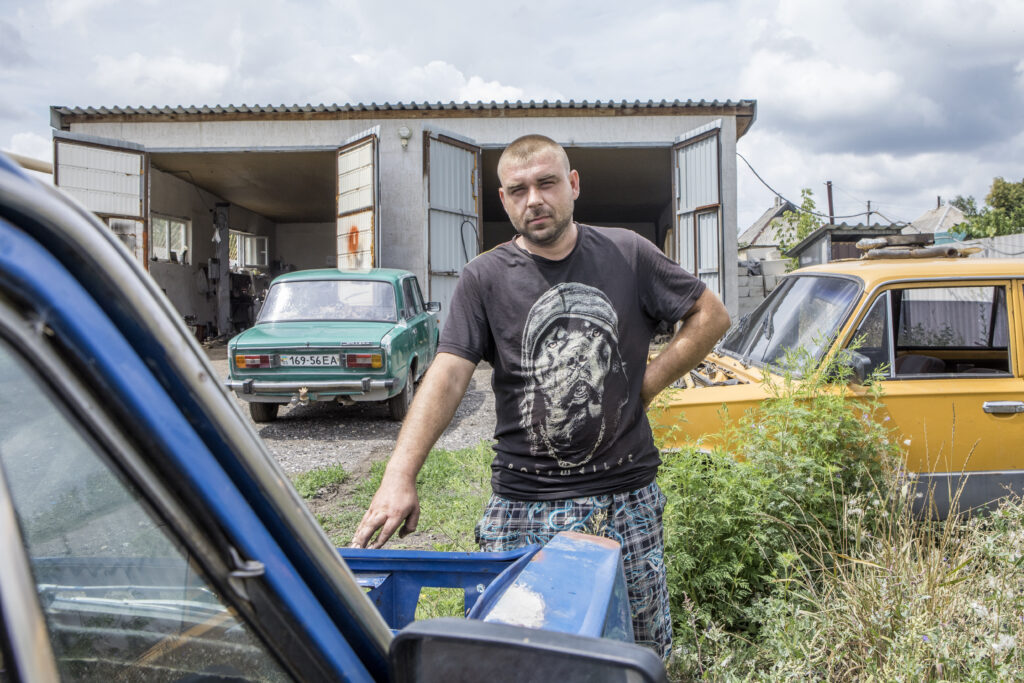 Yevhen Fedyk
Yevhen Fedyk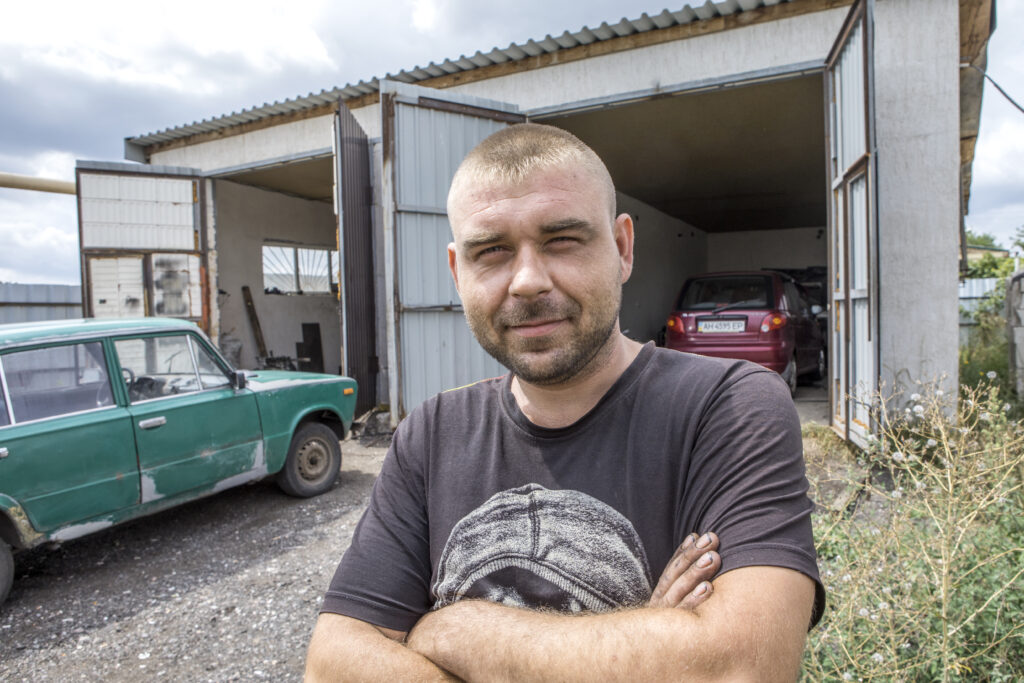 Yevhen Fedyk
Yevhen Fedyk
Work and pigeons
In the courtyard of Yevhen’s auto-mechanic workshop are several Soviet-era cars produced several decades ago. I ask: “Should these cars be scrapped, because it is impossible to repair them?” He shrugs: “Maybe they can be fixed, if you spend time.”
He is obviously not afraid of work. And this is an important feature for a novice entrepreneur. “Sometimes I stay here until one in the morning,” he shrugs in response to the question of how long his working day lasts. And this attitude also distinguishes him from local competitors: such mini-auto shops, as a rule, close in Bakhmut at 5pm.
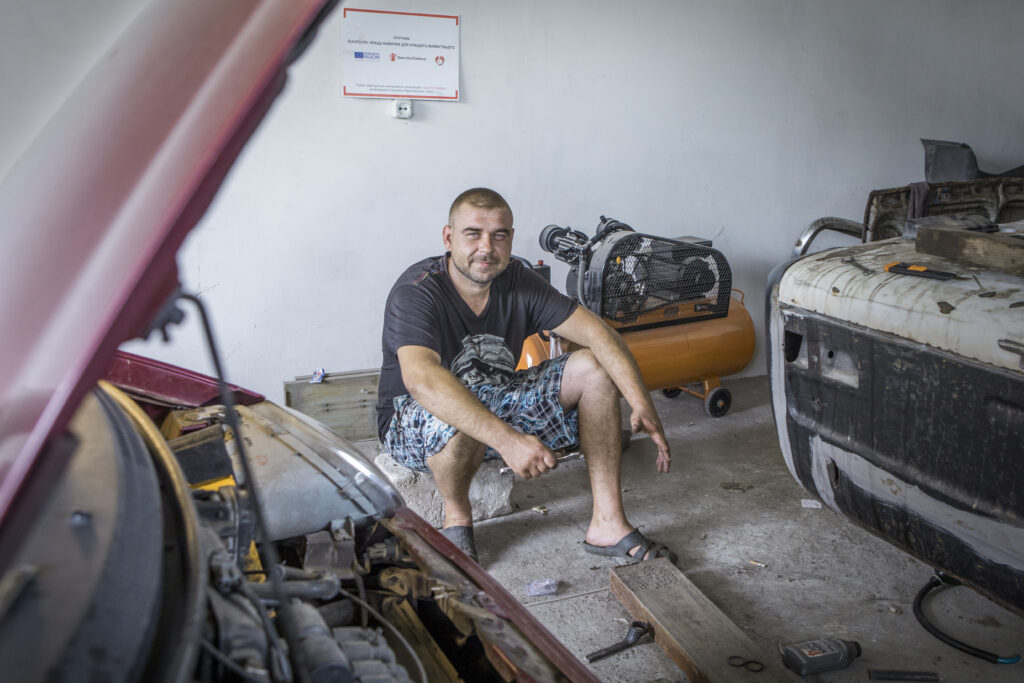 Yevhen Fedyk in his car repair shop
Yevhen Fedyk in his car repair shop
As for the future, so far Eugene has not thought about expanding and hiring assistants. He says that he is afraid that his subordinates might ruin something. But, it seems, he will have to hire additional staff members, otherwise, there is simply not enough time to serve everyone.
When we leave Yevhen’s service station, we are escorted by the same flock of pigeons as before. These birds live in special enclosures in the courtyard of his car service. They remind Yevhen of his home: there he had the same pets.
Author: Kateryna Shapoval
“Better skills for a better future” is implemented as part of the EU4Youth programme. The aim of the project is to promote the development of entrepreneurship of young people who are in adverse conditions. It provides these people with access to education and increases the chances of finding a job.
MOST READ
SEE ALSO
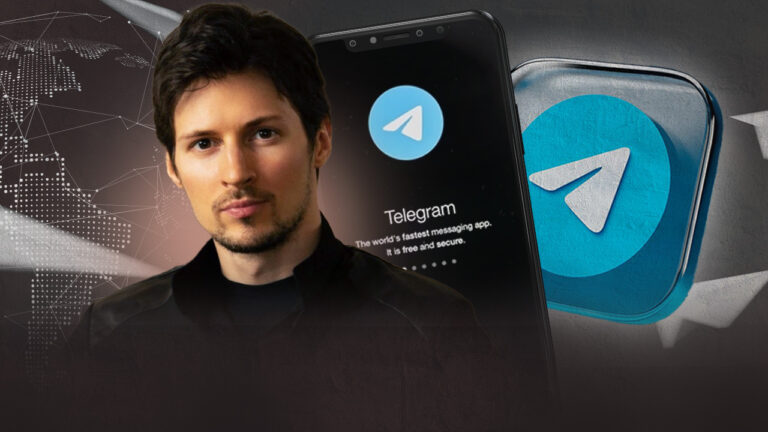
‘The Kremlin has entered the chat’: how to protect your personal data on Telegram and avoid the bait of propaganda

No, time is not on Russia‘s side

Socks for Peace: how the Vilni project is supporting internally displaced women in Ukraine
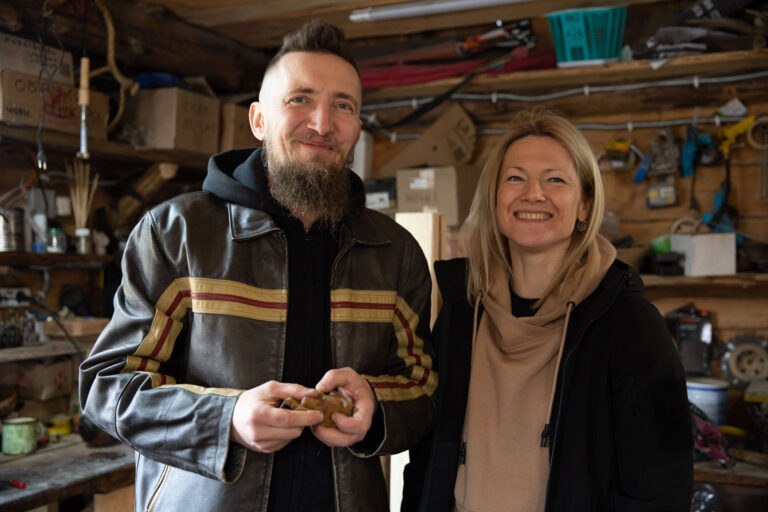
Celebrating traditional Ukrainian cultural identity in Rivne
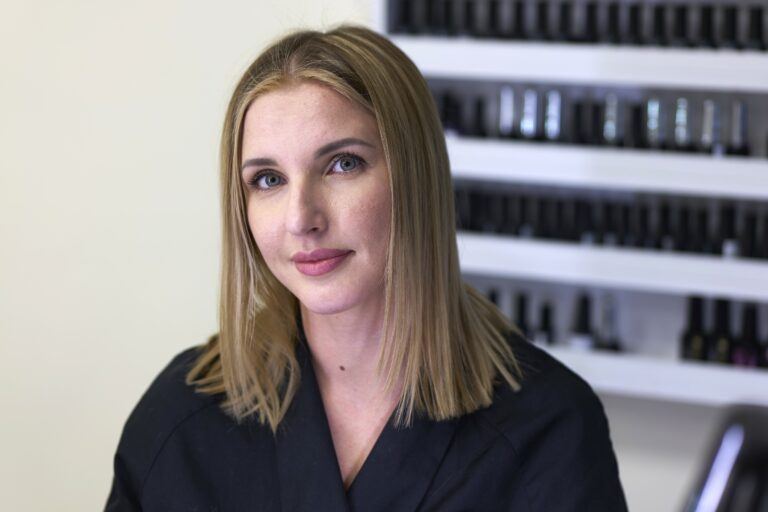
Natalia wanted her child to escape the war: how a single mother set up a successful business in Lithuania
More campaign pages:
Interested in the latest news and opportunities?
This website is managed by the EU-funded Regional Communication Programme for the Eastern Neighbourhood ('EU NEIGHBOURS east’), which complements and supports the communication of the Delegations of the European Union in the Eastern partner countries, and works under the guidance of the European Commission’s Directorate-General for Neighbourhood Policy and Enlargement Negotiations, and the European External Action Service. EU NEIGHBOURS east is implemented by a GOPA PACE-led consortium. It is part of the larger Neighbourhood Communication Programme (2020-2024) for the EU's Eastern and Southern Neighbourhood, which also includes 'EU NEIGHBOURS south’ project that runs the EU Neighbours portal.

The information on this site is subject to a Disclaimer and Protection of personal data. © European Union,







